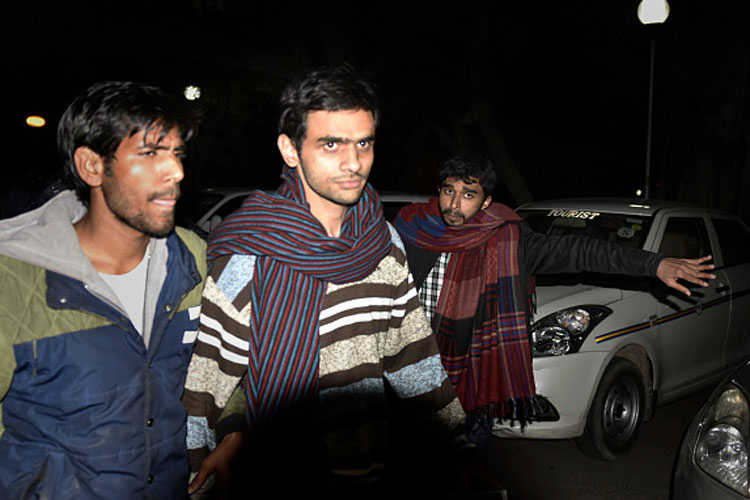
Image: NDTV
Umar Khalid and Anirban Bhattacharya have both been granted six months interim bail by the Sessions Court, Delhi.
Additional Sessions Judge Reetesh Singh granted the bail plea of Umar and Anirban and directed both the accused to furnish Rs 25,000 as surety amount.Delhi’s Patiala House Court on Friday granted six months interim bail to JNU students Umar Khalid and Anirban Bhattacharya, slapped with sedition charges by the Delhi police. The Delhi police comes under the direct control of the Ministry of Home Affairs (MHA), New Delhi.
Additional Sessions Judge Reetesh Singh granted the bail plea of Umar and Anirban and directed both the accused to furnish Rs 25,000 as surety amount. The two students had earlier moved the sessions court seeking bail on the grounds that since the co-accused and JNU student union leader Kanhaiya Kumar has been granted bail by the Delhi High Court in the present matter, both of them are entitled to be released on bail on the “ground of parity”. They had also told the court that allegations levelled against them of raising “anti-national slogans” hailing Afzal Guru are “false” and that they should be granted bail on these grounds.The duo further stated that they “have deep roots in the society” and would not flee from justice during the investigation.
Both Umar Khalid and Anirban Bhattacharya had raised the plea of parity with the JNU students union president Kanhaiya Kumar, who has been released by the Delhi High Court on an interim bail for six months. The applicants also said the incident, commemorating the hanging of Parliament attack convict Afzal Guru, did not attract the criminal provisions of sedition. The prosecution had contended that the allegations against the accused were grave and they were the main organisers of the event, in which some “anti-national” slogans were also raised. The intention of the two students, who were in judicial custody, was to “create hatred” against the established government, which attracted sedition charges, according to the prosecution.